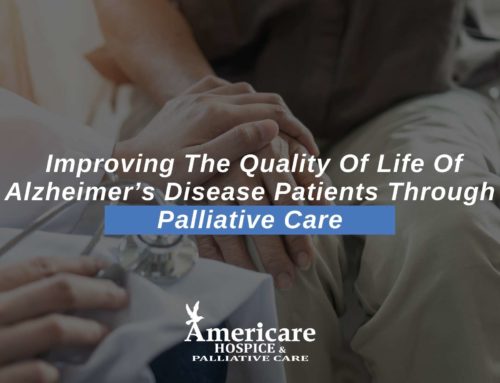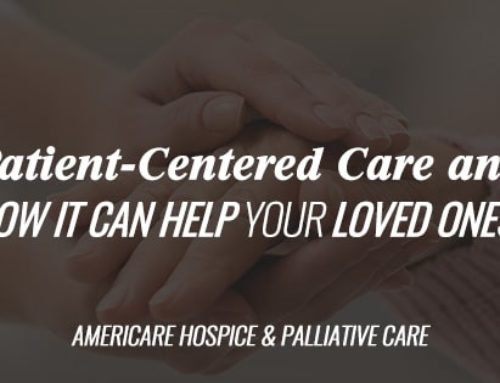How Hospice Care Can Help Dementia Patients
The Advantages Of Hospice Care For Patients With Dementia
Dementia is a serious medical condition that affects over 5 million adults over age 65 and can lead to serious impairments, including the ability to care for one’s self, make decisions, think logically, or complete daily tasks. Dementia is not a specific illness, but instead is a general diagnosis that encompasses a variety of different symptoms and has many different causes. Although the vast majority of dementia patients are older adults, it is not considered to be part of normal aging.
Common symptoms of dementia include problems with memory, communication, attention, judgment, reasoning, problem solving, hand-eye coordination, motor skills, and visual perception that are more severe and intensive than typical aging. Symptoms vary dramatically from person to person and will worsen significantly over time.
Some of the most common signs of dementia include situations such as:
- Getting lost in familiar areas
- Forgetting names and identities of friends, family, and other close relationships
- Repeatedly using the wrong word to name objects
- Forgetting memories and details
- Difficulty or inability to complete basic tasks independently, including self-care and hygiene, such as dressing and bathing
Dementia continues to progress over time as the brain deteriorates, ultimately causing the brain to stop functioning. The unique challenges of dementia mean that families and patients need consistent support, information, and assistance. Especially toward the end of life, palliative care is becoming an increasingly crucial element of care for dementia patients.

What Is Palliative Care?
Palliative care refers to a specialized medical field for people who are at the end of life and/or facing serious illnesses. The goal of end-of-life palliative care is to improve the quality of life for patients, their caregivers, and their families by providing multi-faceted support.
In most situations, palliative care is provided by a team of medical professionals that includes doctors, nurses, social workers, therapists, and mental health professionals.
Palliative care from Queen Creek Catholic hospice provides essential end-of-life care, including:
- Pain management, such as physical therapy, medications, massage, and other treatment modalities
- Spiritual support
- Emotional support and help with depression or anxiety, which may include therapy, counseling, and psychiatric care
- Assistance with planning for the future
- Medical equipment and mobility devices as needed
- Ensuring that treatment outcomes and care approaches are consistent with the patient’s religious beliefs, morals, and goals
- Grief and caregiver support
- Any other type of support that will provide comfort care or improve quality of life
Palliative care is not limited to just patients; helping the family and caregivers is often just as important, especially in difficult situations such as dementia, where the patient’s abilities will continue to deteriorate, resulting in a need for increasing amounts of support with basic care, safety, and medical decisions.
How Can Palliative Care Help Dementia Patients & Their Families?
One of the biggest challenges of dementia is the continually increasing care that patients need over time. This will include complications such as loss of ability to recognize hunger and thirst, inability to eat, difficulty swallowing, and difficulty using the restroom unassisted. Families will often face difficult decisions. One example is when a patient becomes unable to eat; the family will need to decide whether to utilize artificial feeding methods and to what extent.
These types of decisions can become very complicated when family members disagree or when there are significant negative side effects. Palliative care through Tempe inpatient hospice can make these decisions easier by working with families to determine goals of care and meeting patient’s wishes for their end-of-life care. Although these conversations can be difficult, palliative care professionals are trained to respectfully and compassionately guide discussions to ensure that hospice care meets the goals of the patients and fits with their moral and religious values.
Because dementia progresses slowly and presents differently in each person, it can be a challenge for people outside the family to recognize the severity of the illness. This adds physical and emotional challenges for caregivers and family members because they will be grieving many losses while their loved one is still alive. Changing relationships, the patient’s inability to recognize people, the grieving process, and ongoing losses leave dementia patient caregivers exhausted, overwhelmed, and burnt out. Gilbert hospice and palliative care can ease these challenges by providing hospice care, supporting patients and families through the emotional challenges of dementia and end of life, and assisting with communication between family members.
When the time is right and home care is no longer possible, your palliative care team will help your loved one receive the care they need in a Mesa hospice facility and help navigate the complexities of end-of-life care.
How To Find Palliative Care For Your Family
If you or a loved one is facing a dementia diagnosis, contact the compassionate professionals at Americare Hospice. We provide respectful and loving support to patients and their families that will help improve their quality of life and ease the challenges of caregiving. Our services include in-home care, inpatient care, physical therapy, alternative therapies, and many other comfort-giving types of care so that your loved one will be fully supported. Contact us today to learn more about how we can serve your family.

Americare Hospice and Palliative Care
1212 N. Spencer St., Suite #2 Mesa, Arizona 85203
Office: (480) 726-7773
Fax: (480) 726-7790
Email: info@americarehospice.org





